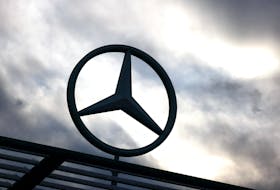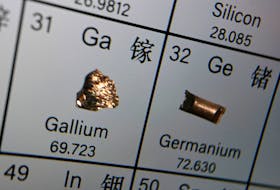By Anna Koper and Natalia Zinets
WARSAW/KIEV (Reuters) - Poland will not be able to get clean oil from a Russian pipeline until refineries have agreed how to divide tainted crude still in the system, the chief executive of Polish refiner PKN Orlen said on Monday.
Flows through the Druzhba pipeline were suspended last month due to contamination, sending shockwaves through global oil markets. Russian pipeline operator Transneft is set to compensate buyers for any proven losses.
PKN, fellow Polish refiner Lotos, and German refineries Schwedt and Leuna, will have to agree how much of the tainted oil left in the system they will accept, said PKN Chief Executive Daniel Obajtek.
"It is known that in this pipeline there is a certain amount of contaminated oil ... as a result of this there is a division which must be determined," Obajtek said.
He added PKN's refineries were safe and working at full capacity.
"There is no danger of a lack of fuel due to the diversification process and other processes which we are implementing. We are safe," Obajtek said, referring to oil PKN has brought in from other sources.
A quarter of Russian export flows has been disrupted since April when high levels of organic chloride were found in crude pumped via the Druzhba pipeline to the Baltic port of Ust-Luga, as well as to central Europe and Germany.
The pipeline splits in Belarus into a northern spur to Poland and Germany and a southern leg via Ukraine to Slovakia, Hungary and the Czech Republic.
DIRTY OIL
Ukraine's UkrTransNafta said that hours after resuming transit of Russian oil to the European Union on Monday it suspended flows again after Hungarian oil company MOL informed it of technical problems on the Hungarian side.
UkrTransNafta said it would resume supplies after the Hungarians confirmed they were ready to receive them.
While Russia and other countries are trying to find a way to clean the pipeline, trading companies Vitol and Unipec are sending around 700,000 tonnes of contaminated Russian oil to Asia in an attempt to sell barrels rejected by buyers in Europe, according to trading sources and ship tracking data.
Vitol and Unipec are mainly targeting Chinese independent refiners, or so-called teapots, that have shown an interest in taking the oil which could be mixed with other crudes to make it usable, traders said.
Total and Eni, two major buyers of Russian oil, have stopped payments to Russian firms that sold them contaminated oil and say they will only pay when compensation is agreed, trading sources said.
Last week, Total's 230,000 barrel-per-day Leuna refinery in Germany, which usually receives Urals crude via Druzhba, declared force majeure on refined product shipments as a result of the contamination.
Belarus, Ukraine and Kazakhstan have all said they plan to seek compensation from Russia for the tainted oil.
Meanwhile, Swedish oil refiner Preem said on Monday it had reached a compensation deal with the supplier of Urals it imported via the Baltic sea port of Ust-Luga. Preem did not say who would compensate it, nor how.
(Reporting by Anna Koper and Alan Charlish in WARSAW; Andrei Makhovsky in MINSK; Shadia Nasralla in LONDON; Florence Tan in SINGAPORE; Olga Yagova, Gleb Gorodyankin and Dmitry Zhdannikov in MOSCOW; Writing by Alan Charlish and Katya Golubkova; Editing by Joanna Plucinska and Mark Potter)








